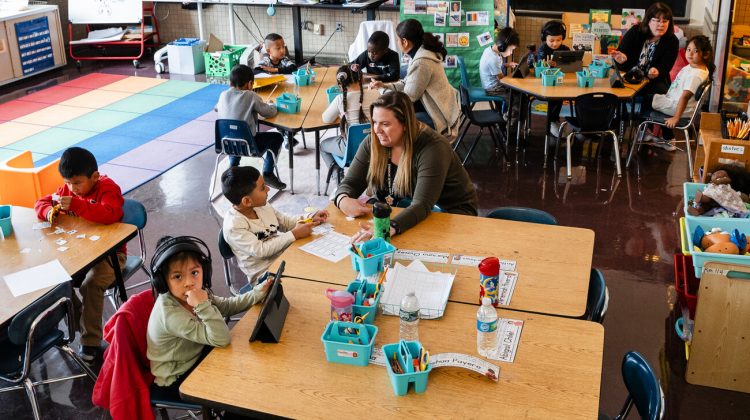LYNN — Families have the option of having students learn in English and Spanish at two Lynn Public Schools.
Harrington and Connery elementary schools offer a dual language program in which participating students learn all academic content in both languages, spending at least half of the school day in each.
Harrington initiated the program with two kindergarten classes in 2020, during the pandemic when schools were in remote learning. The school has added two classes per year, with that first group now in fourth grade. Connery instituted dual language in 2022 with two kindergarten classes who are now in the second grade. The program expands by one grade each year at both schools.
There are 251 dual-language students at Harrington, 40 percent of the student body, and 140 at Connery, 25 percent of all students.
“Language-acquisition research tells us to fully develop proficiency in a new language it takes 5-7 years,” Amanda Campbell, Lynn Public Schools deputy director of Multilingual Education, who oversees the dual language program at both schools, said “Our students have six full years (grade K-5) of English and Spanish and are fully bilingual and biliterate, with deep academic proficiency in both languages.
At Connery, all students who are enrolled in the dual language program have a background of Spanish as their primary language. At Harrington, students come in with a wide variety of languages, Campbell said.
“We are pleased to offer this option for families at these schools to select what model is best for their child,” said Superintendent of Schools Dr. Evonne S. Alvarez. “Producing bilingual learners not only benefits students, but also our district.”
Campbell said the dual language program is in demand, with a waiting list at both schools. She added that it is gratifying to watch students use both languages in conversation.
“They seamlessly switch between the two languages as they are talking among themselves,” she said.
In 2002, Massachusetts voters eliminated transitional bilingual education and chose immersion, thereby rendering bilingual education programs, with few exceptions, illegal. The state legislature passed a bill in 2017 giving school districts more flexibility in how they offer bilingual education. In addition to not producing fully bilingual students during that period, another result was fewer teachers prepared to provide bilingual education. Staffing remains an issue, and Lynn Public Schools is addressing it by having students from Lynn Tech doing their co-op with teachers in dual language classrooms.
“We want to make sure they leave high school knowing that being a bilingual teacher is a viable career path,” Campbell, who started teaching English as Second Language courses in Lynn in 2015, said.
Lynn teachers have the opportunity to study in Boston College’s bilingual endorsement program thanks to grant funding from the state that helps with course work and MTEL (Massachusetts Tests for Educator Licensure) prep and vouchers to take the exam.

